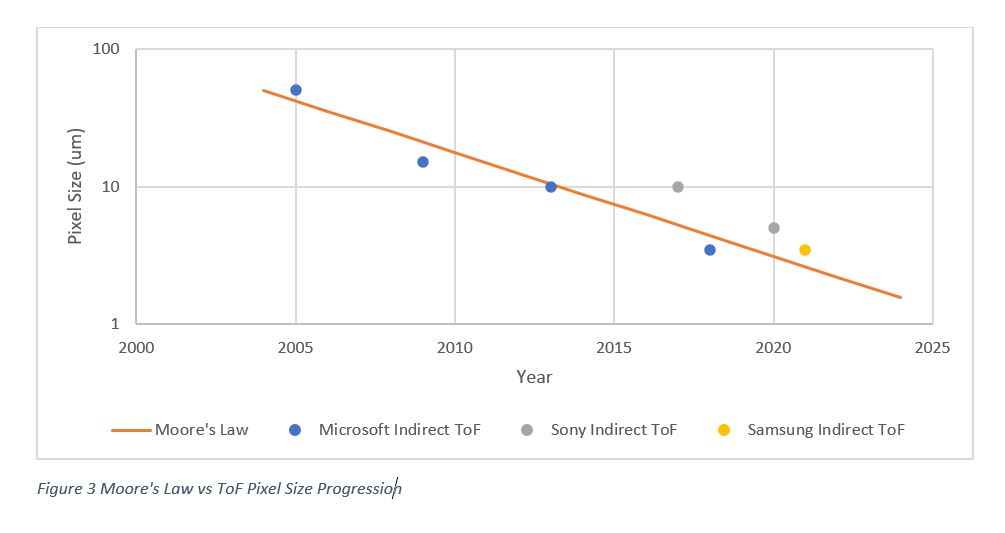Moore’s Law for ToF Pixels

In 1975, Gordon Moore made a prediction which has now become known as Moore’s Law. It stated that the number of transistors in a microchip doubles every two years, thereby exponentially increasing the processing power or speed every two years (or 18 months depending on the source) (Figure 1). This prediction has been quite accurate to date. But now, there is a new prediction that this law may soon apply to time-of-flight (ToF) image sensors for cameras as well.
If Moore's Law does apply to ToF pixels, then the technology could improve by 4 times in just six years, and more advanced 3D imaging capabilities would become possible. However, it's worth noting that this prediction is not certain, and it remains to be seen if ToF sensors will indeed follow the pattern described by Moore's Law.
For more information, check out Moore’s Law for ToF Pixels.
Published on:
Learn moreRelated posts
CommScope transforms technology center with Azure private MEC
CommScope has successfully transformed its technology center with Azure private MEC, and you can learn more about it by watching this video. T...
Intro to Microsoft Time Of Flight (ToF)
If you're interested in 3D vision sensing, the Microsoft Time of Flight technology might be right up your alley. In this blog post, you'll lea...
Raw-to-Depth: Advanced 3D Sensing
Microsoft's Time-of-Flight (ToF) technology is now available to industry professionals and Azure customers. This advanced 3D sensing tool offe...
Understanding Indirect ToF Depth Sensing
If you've been following our introductory posts on indirect time-of-flight (ToF), this one is designed to take you a little deeper into how Mi...
Time of Flight Camera – System Overview
The Azure Depth Platform program has recently featured guest blog authors Paul O’Sullivan and Nicolas Le Dortz introducing the Analog Devices ...
Case Study: Davidovich Group keeps its eyes on inventory with Azure 3D and AI in the cloud.
The Davidovich Group, a leading distributor of consumer goods, has turned to Microsoft's 3D Time-of-Flight (ToF) technology to improve its inv...
Case Study: dnata digitally transforms air cargo ground operations with Microsoft 3D technology and Azure.
In this case study, discover how dnata, a leading provider of air cargo and ground handling services, used Microsoft 3D technology and Azure t...
How Do ToF Based Depth Cameras Improve Our Lives?
In this article, co-authors David Chen, co-founder and CEO at Orbbec, and Amit Banjeree, co-founder and technical lead of the Azure Depth Plat...
Time-of-flight camera characterization with functional modeling for synthetic scene generation
Microsoft's recent paper, titled "Time-of-flight camera characterization with functional modeling for synthetic scene generation," showcases t...